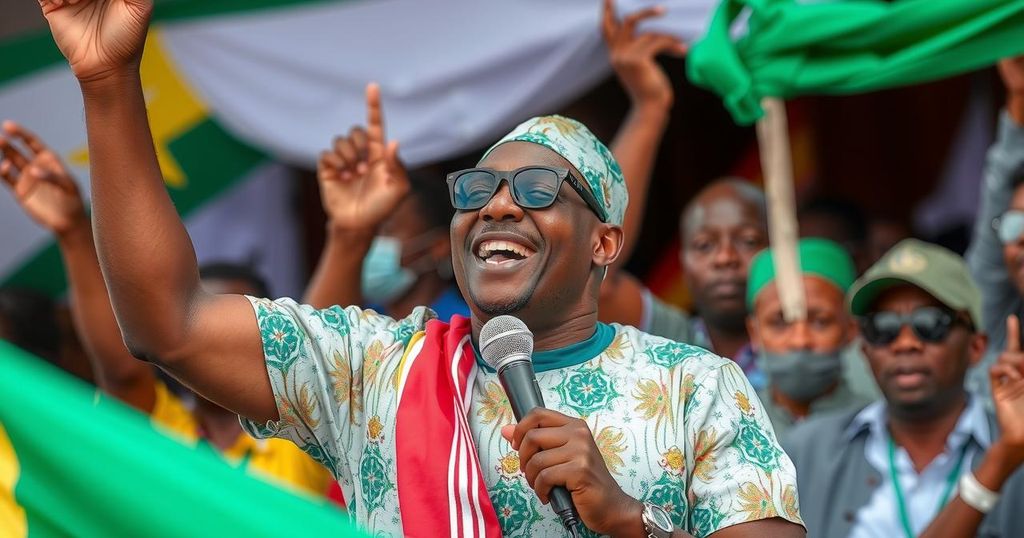The opposition in Ghana claims its candidate John Mahama has won the presidential election based on provisional results. The election was primarily contested against NPP’s Mahamudu Bawumia amid high economic tensions. Voter turnout was stable, with some incidents of violence reported. Official results are pending completion by the Electoral Commission, expected by Tuesday.
The opposition National Democratic Congress (NDC) in Ghana has asserted that provisional election results indicate their candidate, John Mahama, has secured victory in the recent presidential election held on Saturday. Despite these claims, Ghana’s Electoral Commission is still in the process of compiling the official results. The contest was primarily between Mahama and the New Patriotic Party (NPP) candidate, Vice President Mahamudu Bawumia, who sought to distance himself from public dissatisfaction regarding the government’s handling of the economy and rising living costs. The election was marked by critical economic struggles, as Ghana grapples with high inflation rates and a financial crisis culminating in a $3 billion International Monetary Fund (IMF) bailout.
During this election, voters were tasked with selecting a successor to President Nana Akufo-Addo, who is stepping down after completing two terms of office. There were also parliamentary elections taking place concurrently. According to NDC spokesman Sammy Gyamfi, an internal assessment of vote counts demonstrated that Mahama received 56.3 percent of the total votes, while Bawumia secured 41.3 percent. Gyamfi stated, “It is very clear the people of this country have voted for change.” Local media reported a similar trend, revealing Mahama leading in preliminary counts from 42 of the 276 electoral constituencies. The Electoral Commission, however, emphasized that they were still processing votes and had yet to receive regional tallies, with official results expected by Tuesday.
While the voting was mostly peaceful, tragic incidents occurred, resulting in the deaths of two individuals, one in the northern region and another in the central region. Ghana’s political landscape has historically been stable, with the NPP and NDC alternating power since the onset of multi-party politics in 1992. Bawumia’s campaign, under the mantra “Break the 8,” aimed to secure an unprecedented third consecutive term for the NPP, yet he faced challenges with public dissatisfaction regarding the prior administration’s economic achievements. Though inflation rates have decreased from over 50 percent to approximately 23 percent, challenges remain prevalent, presenting an opportunity for Mahama, who previously served as President from 2012 to 2017, to make a significant political comeback after unsuccessful attempts in previous elections.
Ghana’s recent presidential election showcased the nation’s dual political system, where the NDC and NPP have alternated power since 1992. The electoral landscape is heavily influenced by the economic performance of the incumbent government. High inflation and economic instability have been pressing issues for voters. The election not only determined the presidency but also involved the selection of a new parliament, marking a critical juncture in Ghana’s democratic governance.
The unfolding electoral scenario in Ghana highlights a pivotal moment for the country’s political future, with the opposition asserting a lead in the presidential race against a backdrop of economic challenges. As both parties await the official results from the Electoral Commission, public sentiment points toward a desire for change amid ongoing economic struggles. The upcoming days will be crucial in confirming the legitimacy of the claims made by the opposition and the response of the ruling party.
Original Source: themercury.com







